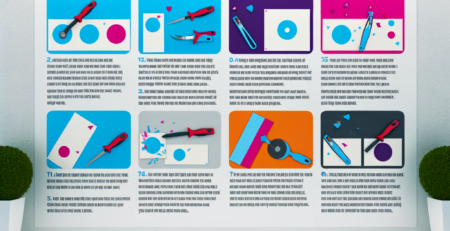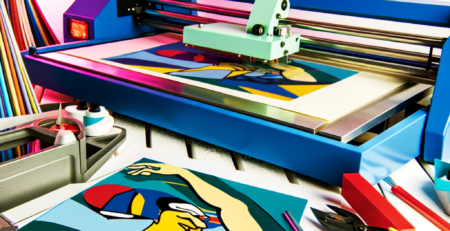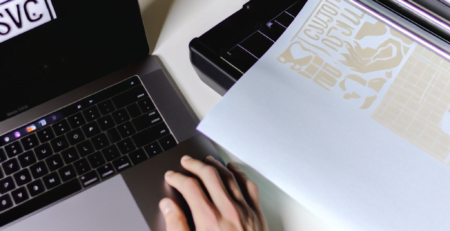Frequently Asked Questions About Waterproof Vinyl
Table of Contents
“Seal the Deal on Durability: Your Ultimate Guide to Waterproof Vinyl FAQs”
Introduction
Frequently Asked Questions About Waterproof Vinyl
Waterproof vinyl flooring has become a popular choice for homeowners and businesses looking for a durable, low-maintenance, and water-resistant flooring solution. This type of flooring combines the aesthetic appeal of hardwood or stone with the practical benefits of synthetic materials, offering a versatile option for various settings, including bathrooms, kitchens, and high-traffic areas. As interest in waterproof vinyl continues to grow, many questions arise regarding its features, installation, care, and suitability for different environments. The following is an overview of common inquiries that consumers have when considering waterproof vinyl for their flooring needs.
Top 10 FAQs About Waterproof Vinyl Flooring Installation
Waterproof vinyl flooring has become a popular choice for homeowners and businesses alike, offering durability, aesthetic appeal, and the added benefit of being impervious to water damage. As such, many questions arise regarding its installation and maintenance. Here, we address the top ten frequently asked questions about waterproof vinyl flooring installation to help guide your decision-making process.
Firstly, many wonder if waterproof vinyl flooring is genuinely waterproof. The answer is a resounding yes. Waterproof vinyl is designed with a core that does not absorb water, preventing swelling and damage that can occur with other types of flooring when exposed to moisture. This makes it an ideal choice for areas prone to spills or high humidity, such as kitchens, bathrooms, and basements.
Another common question is about the longevity of waterproof vinyl flooring. When properly installed and maintained, it can last anywhere from 10 to 20 years. The wear layer’s thickness is a critical factor in determining the floor’s lifespan; the thicker the wear layer, the more durable the flooring will be.
Prospective buyers often inquire about the installation process. Waterproof vinyl flooring is relatively easy to install. Many products come with a click-lock design that allows the planks to snap together without the need for adhesives. This floating floor system is DIY-friendly, although professional installation is recommended to ensure the best results.
Concerning the subfloor requirements, waterproof vinyl flooring can be installed over various subfloors, including concrete, plywood, and even existing flooring. However, the subfloor must be level, clean, and free of imperfections to avoid issues post-installation. Any unevenness can lead to problems with the locking system and the overall stability of the flooring.
The question of whether underlayment is necessary is also frequently asked. While waterproof vinyl flooring can be installed without underlayment, using one can provide additional soundproofing, cushioning, and thermal insulation. Some vinyl products come with a pre-attached underlayment, simplifying the installation process.
Many are curious about the compatibility of waterproof vinyl flooring with underfloor heating systems. Most waterproof vinyl floors are suitable for use with radiant heating systems, provided the temperature does not exceed the manufacturer’s recommended limits. It is essential to check the product specifications before installation to ensure compatibility.
The ease of maintenance is a significant selling point for waterproof vinyl flooring. It requires minimal upkeep—regular sweeping and occasional mopping with a mild cleaner are sufficient to keep the floor looking new. Avoid using abrasive cleaners or scrubbers that can damage the wear layer.
Another question that arises is whether waterproof vinyl flooring can be repaired if damaged. While it is highly durable, if a plank becomes damaged, it can be replaced. The process involves removing the affected plank and snapping a new one in place, which can be more challenging than the initial installation but is still manageable.
Homeowners often ask if waterproof vinyl flooring is eco-friendly. The answer varies by product. Some vinyl flooring is made from recycled materials and is recyclable at the end of its life, while others may not be as environmentally friendly. It is important to research the specific product to determine its ecological impact.
Lastly, the cost factor is always a consideration. Waterproof vinyl flooring is generally more affordable than hardwood or stone flooring, but prices can vary based on the quality and design. It offers a cost-effective solution for those seeking a high-end look without the high-end price tag.
In conclusion, waterproof vinyl flooring presents a versatile and practical solution for flooring needs, especially in areas susceptible to moisture. With its ease of installation, durability, and low maintenance requirements, it is an excellent investment for both residential and commercial properties. By addressing these common questions, you can make an informed decision on whether waterproof vinyl flooring is the right choice for your space.
Understanding Waterproof Vinyl: Answers to Common Questions

Understanding Waterproof Vinyl: Answers to Common Questions
Waterproof vinyl flooring has emerged as a popular choice for homeowners and businesses alike, thanks to its durability and versatility. As interest in this flooring solution grows, so do the questions surrounding its features, benefits, and maintenance. In this article, we aim to address some of the most frequently asked questions about waterproof vinyl to help you make an informed decision.
Firstly, what exactly is waterproof vinyl? Waterproof vinyl flooring, often referred to as luxury vinyl, is a synthetic flooring material that is designed to resist water penetration. This makes it an ideal choice for areas prone to moisture, such as bathrooms, kitchens, and basements. Unlike traditional vinyl, waterproof vinyl comes with a core that is either made from wood plastic composite (WPC) or stone plastic composite (SPC), both of which provide a rigid, stable, and completely waterproof structure.
One common question is about the difference between water-resistant and waterproof vinyl. While water-resistant flooring can handle small spills and humidity, it cannot withstand prolonged exposure to moisture. Conversely, waterproof vinyl can be submerged in water without suffering damage, making it a superior option for high-moisture environments.
Another concern often raised is the durability of waterproof vinyl. This flooring is not only resistant to water but also to scratches, stains, and dents, making it a long-lasting option for high-traffic areas. The wear layer, which is the top surface of the vinyl, is available in various thicknesses and is key to the flooring’s durability. A thicker wear layer translates to greater resistance to wear and tear.
Installation is another area where waterproof vinyl shines. It is relatively easy to install, often featuring a click-lock system that allows the planks to be snapped together without the need for adhesives. This ease of installation makes it a favorite among DIY enthusiasts. However, it is crucial to ensure that the subfloor is level and clean before installation to avoid any issues.
Maintenance is a breeze with waterproof vinyl. It requires no special cleaners or treatments. Regular sweeping and occasional mopping with a mild detergent are sufficient to keep the floor looking new. Its resistance to moisture also means that there is no need to worry about warping or swelling, common issues with natural wood floors when exposed to water.
When it comes to aesthetics, waterproof vinyl offers a wide range of options. It can mimic the look of natural wood, stone, or ceramic tiles, providing the beauty of these materials without their inherent drawbacks. This versatility allows homeowners to achieve their desired look in areas where using natural materials might not be practical.
Finally, the environmental impact of waterproof vinyl is a consideration for many. While vinyl is a synthetic product, many manufacturers are now producing eco-friendly options that contain recycled materials and do not release harmful volatile organic compounds (VOCs). It is important to research brands and look for certifications that indicate a product’s environmental friendliness.
In conclusion, waterproof vinyl presents a compelling option for those seeking a durable, easy-to-maintain, and stylish flooring solution. Its ability to withstand moisture, coupled with its ease of installation and variety of designs, makes it suitable for almost any space. As with any flooring choice, it is essential to weigh the benefits against your specific needs and preferences to ensure that waterproof vinyl is the right fit for your project.
Maintenance and Care FAQs for Your Waterproof Vinyl Floors
Waterproof vinyl flooring has become a popular choice for homeowners and businesses alike, thanks to its durability, aesthetic appeal, and ease of maintenance. As with any flooring option, it’s important to understand how to properly care for and maintain your waterproof vinyl to ensure it remains in pristine condition for years to come. In this article, we will address some of the most frequently asked questions about maintaining and caring for waterproof vinyl floors.
One of the most common inquiries is how to clean waterproof vinyl flooring effectively. The process is quite simple and requires minimal effort. Regular sweeping or vacuuming is essential to remove dirt and debris that can scratch the surface over time. When it comes to mopping, it’s advisable to use a damp mop rather than a soaking wet one. A gentle, pH-neutral floor cleaner is recommended, as harsh chemicals can damage the vinyl’s surface. It’s important to avoid abrasive scrubbers and to promptly clean up spills to prevent staining.
Another question that often arises is whether waterproof vinyl can withstand heavy furniture and appliances. While waterproof vinyl is resilient, it’s not immune to dents and scratches. To protect your floors, consider using furniture pads under heavy items and be cautious when moving them across the floor. Additionally, for appliances that generate heat or have sharp edges, it’s wise to use a protective mat or plywood underlayment to distribute the weight and prevent potential damage.
Many are curious about the longevity of waterproof vinyl flooring and what they can do to extend its lifespan. With proper care, waterproof vinyl can last for decades. To maximize its durability, it’s important to maintain a regular cleaning routine and immediately address any spills or stains. Moreover, keeping the floors away from direct sunlight can prevent fading and discoloration. Utilizing window treatments or UV-protective coatings can be beneficial in this regard.
The issue of repairing waterproof vinyl flooring is another area of concern. In the event of damage, such as a deep scratch or gouge, individual planks or tiles can often be replaced without having to redo the entire floor. This modular aspect of vinyl flooring makes it a cost-effective and convenient option for many. However, it’s crucial to consult with a professional or refer to the manufacturer’s guidelines to ensure that the repair is done correctly and matches the existing flooring seamlessly.
Lastly, people frequently ask about the best practices for preserving the appearance of waterproof vinyl. To maintain the aesthetic quality of your floors, it’s advisable to use doormats at entrances to minimize the amount of dirt and grit tracked in. Additionally, regular dusting or sweeping can prevent the buildup of particles that can cause scratches. For those with pets, keeping nails trimmed can also help in avoiding unsightly marks on the flooring.
In conclusion, waterproof vinyl flooring is a low-maintenance, durable option that can withstand the rigors of daily life when properly cared for. By following these simple maintenance and care tips, you can ensure that your waterproof vinyl floors remain beautiful and functional for many years. Remember, the key to longevity is a combination of regular cleaning, protection from damage, and prompt attention to any issues that may arise. With these practices in place, your waterproof vinyl flooring will continue to be a valuable and enduring feature of your home or business.
Conclusion
Conclusion:
Waterproof vinyl flooring has become increasingly popular due to its durability, water resistance, and ease of maintenance. It is an ideal choice for areas prone to moisture and spills, such as bathrooms, kitchens, and basements. Consumers often inquire about its waterproof capabilities, installation process, cost, types available, and care instructions. The product’s versatility and variety of styles make it suitable for a wide range of design preferences. Overall, waterproof vinyl offers a practical and aesthetically pleasing flooring solution for both residential and commercial spaces.





Leave a Reply